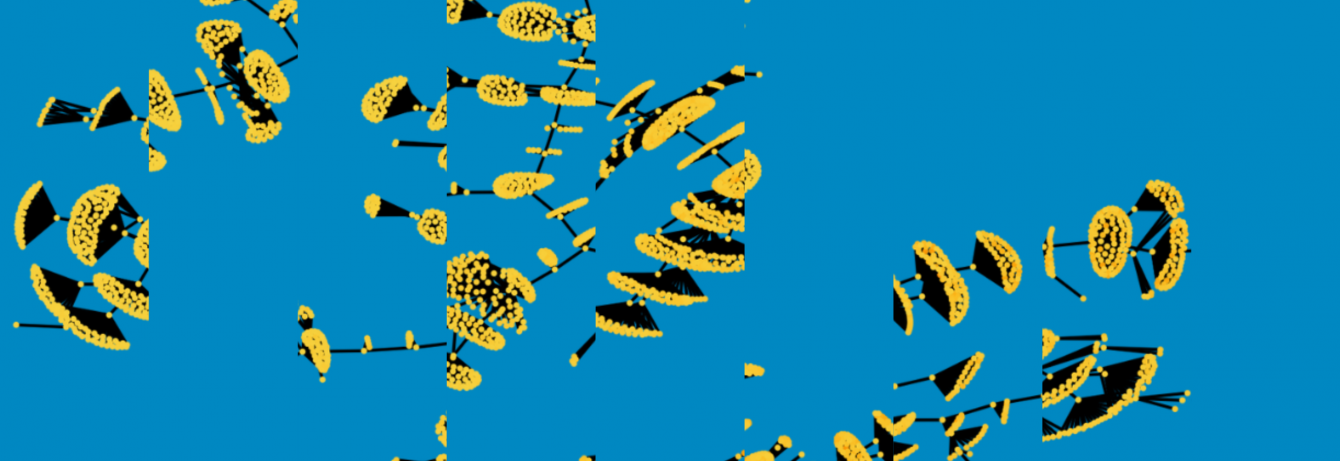
Annual Report
If you would like to receive the digital HITS Annual Report, please use this registration form: https://www.h-its.org/registration/
The HITS Annual Report 2022 – Foreword
As a scientist recently said upon visiting HITS, “This place invites you to think!” It is thus no coincidence that Klaus Tschira and Andreas Reuter chose “this place” as the location for the Klaus Tschira Stiftung (Klaus Tschira Foundation) and later also for their scientific institute, HITS. Indeed, both men recognized the magic of the location and the park. Accordingly, in our HITS Strategy, we explicitly state that the Institute should be a place for creative thinking, for new ideas, and for lively scientific exchange.
To that end, we launched two new programs last year: the Klaus Tschira Guest Professorship Program and the HITS Independent Postdoc Program (see Chapter 6). The aim of both programs is to promote mutual scientific exchange, to give scientists the opportunity to advance their research during their time at HITS without any bureaucratic “red tape,” and to enable networking with other HITSters in the process. Our hope is that the programs will spark new research initiatives and collaborations.
In 2022, we welcomed Antonis Rokas from Vanderbilt University and Sarbani Basu from Yale University (both from the USA) as our first Klaus Tschira Guest Professors. Two further visits by guests from Oxford University (UK) and Carnegie Mellon University (USA) are planned for 2023. We were also able to recruit Rajika Kuruwita as the first HITS Independent Postdoc, who will work on a problem in astrophysics for 2–3 years in close collaboration with Fabian Schneider and his Stellar Evolution Theory group (see Chapter 2.15).
The great freedom of research that is available at our Institute was also one of the reasons that Jan Stühmer followed our call both to HITS and as a junior professor at KIT after having worked in industry for several years. Jan’s group strengthens our activities in machine learning and thus also our pursuit of data-driven science (see Chapter 2.7). Last year, we were additionally forced to say both a happy and sad “goodbye” to Anna Wienhard and her Groups and Geometry group. We warmly congratulate Anna on her appointment as Max Planck Director in Leipzig. We will greatly miss her interdisciplinary perspective and her manifold scientific impulses, which stem from pure mathematics and are applied to computer simulations and machine learning methods.
We are also very pleased about the awards our scientists received in 2022, three of which we would like to highlight here. Ganna Gryn’ova – head of the Computational Carbon Chemistry group – was awarded an ERC Starting Grant, which she will use to break new ground in the development and optimization of organic functional materials (see Chapter 2.2). Moreover, Alexandros Stamatakis – head of the Computational Molecular Evolution group – won an ERA Chair from the EU, which will enable him to establish a group on biodiversity research at the Institute of Computer Science within the Foundation for Research & Technology, Hellas (ICSFORTH), in Crete over the next five years (see Chapter 2.3). Yet again, Alexandros was recognized as a “highly cited researcher.”
These successes are an indication that our Strategy – namely to establish HITS as a space for new ideas and creative minds and to fill this space with life – is gradually paying off. Furthermore, our internal statistics also hint at our success: In 2022, individuals from 40 nations from around the world worked and conducted research at HITS. One group of people who were very important to us was represented by researchers from Ukraine, many of whom had been deprived of the ability to conduct their work at home due to the war. We thus established a study scholarship for refugee students who want to study at KIT or Heidelberg University in the fields in which HITS is active. Moreover, we also formulated an internal Code of Conduct for dealing with Russian and Russia-related institutions and researchers. Finally, the inhabitants of Heidelberg were able to get an impression of our space for creative thinking at our 2022 Open House. In addition to numerous lectures and hands-on stations, we also offered a guided tour of the park to mark its 100th anniversary (see Chapter 5.3).
In order to maintain HITS as a “magical” place for excellent science in the future and to visibly expand its basic research in the natural sciences, mathematics, and computer science internationally, the Institute completed an internal governance process in 2022. The goal of the process was to strengthen the Institute’s scientific self-governance and the position of the Scientific Director. Since the summer of 2022, an amended “Gesellschaftsvertrag” (Shareholder Agreement) has been in force that will be used to provide us with an operational framework for further successful years. It is our hope that our Annual Report 2022 will provide you with interesting insights into our research and activities from last year. We wish you lots of fun and creative thinking while reading!
Dr. Gesa Schönberger, Managing Director
Prof. Dr. Frauke Gräter, Scientific Director 2021 & 2022
Read/download the HITS Annual Report 2022 online here (PDF):